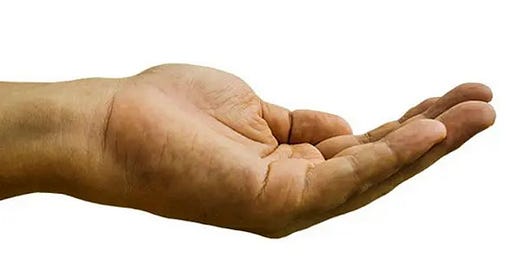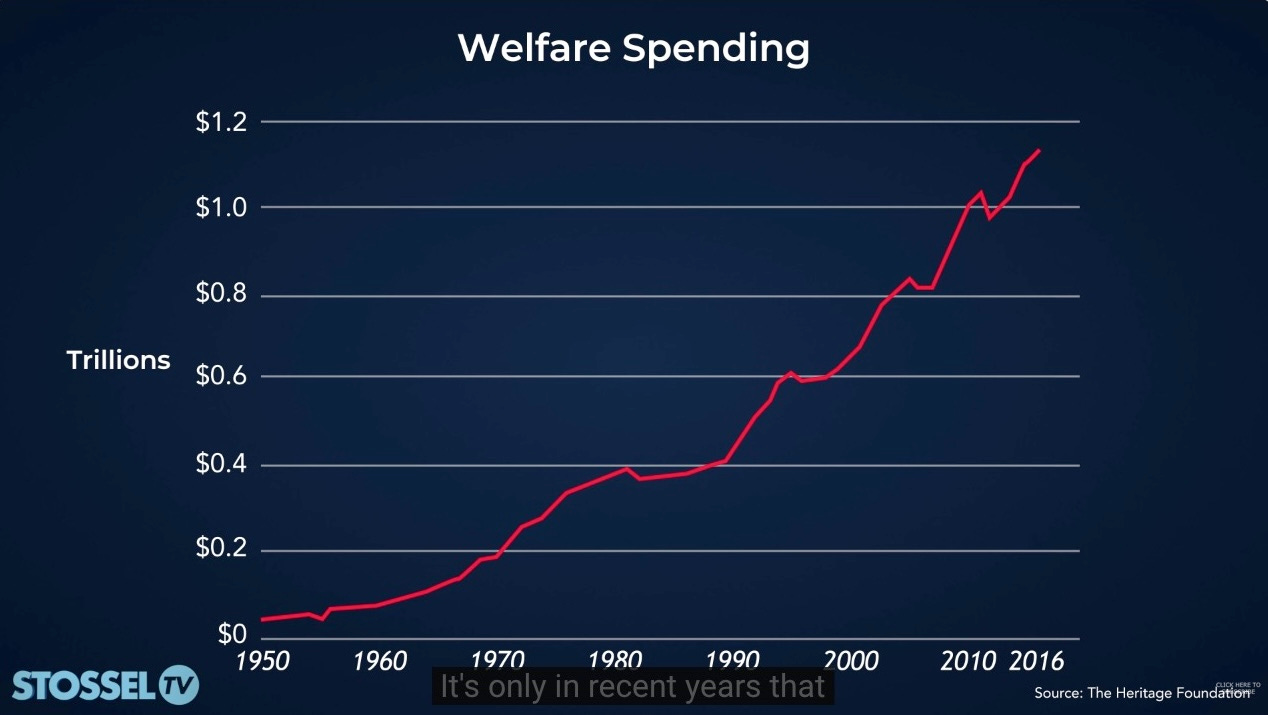Our daily news is teeming with stories about the opioid crisis and the flood of fentanyl in the nation. Per the CDC, 112,000 people died of fentanyl overdoses last year alone, up from just a couple thousand a mere decade ago. The abandonment of border control is widely believed to have exacerbated an already big problem. The New York Post recently carried an article asserting that China is doing this deliberately to undermine our society.
It's a big problem, driven in no small part by myriad "getting it wrong" things the government does, and fentanyl is just one of a number of addictive drugs whose impact on American life has spiked in the last few years.
Today's story, however, is about a different addiction. One that has wreaked even more destruction on America's poor than meth or fentanyl or heroin or crack. I write of the addiction to welfare. Or, if you prefer, government assistance.
In the 1960s, LBJ and his government declared a War on Poverty. Since then, the percentage of children born to unmarried black mothers rose from near-zero to about 67%. Among latinos, near-zero to 42%. Among whites, meanwhile, it rose from near-zero to 24%. We can attribute some of this rise to cultural shifts, including the liberation of women via The Pill, but the demographic disparity tells its own tale. By substituting the government's largesse for traditional fathers' obligations to their children, the War on Poverty has reduced societal pressure for "baby daddies" to care for their kids, and given women less incentive to pressure the men in their lives to marry them when they have kids together. Given the irrefutable correlation between two-parent households and lifetime success, this "help" has done massive harm to those it focused on.
Welfare has also institutionalized poverty and trapped millions into a state of perpetual dependence. The poverty rate, which had been declining steadily, stabilized at 12-13%. Today's poverty rate is virtually unchanged from what it was nearly 60 years ago, at the beginning of that War.
Despite $15 trillion having been spent across the past six decades.
One of the unfortunate products of the War on Poverty is colloquially known as the welfare trap. It makes sense that government assistance decreases as income increases, but as implemented it decreases more rapidly than income's rise, so that each dollar gain in income corresponds to more than a dollar loss in benefits. Consequently, people who want to get off the dole have to endure a stretch of declining total money before they get to a point where they can actually improve their living standards. Cutting back on your lifestyle, especially when you're already on the bottom economic rung, is challenging. Even more so when we factor in the government's knack for making life in general more expensive over time.
Then there's the machine itself. One of the government's big programs, Head Start, costs taxpayers billions of dollars every year. Yet, by the government's own analyses, it is utterly ineffective. Head Start kids exhibit no measurable improvement over non-Head-Start kids by the time they reach the fourth grade. In a sane world, an ineffective program would be cut and the money it gets reallocated or simply not spent at all. But, government is not sane, so Head Start gets more money every year. The people who work in the program, and the people whose jobs are created or supplemented by that program, have every incentive to keep it going, no matter the lack of result.
That problem is endemic to public assistance in general. Public-sector welfare has an efficiency rate of about 30%, meaning that 70% of every dollar spent goes to paying for the bureaucracy. The private sector, on the other hand, gets 70% of every charitable dollar to the needy, and the "competition" for voluntarily-donated dollars perpetually pressures private charities to do well and work efficiently.
Not too long ago, I pointed out that if government didn't spend the $800B per year it currently spends on welfare, it would only take $340B of private charity to make up for it. And, that's before we look at how much less theft and grift there would be, given that private charities have more incentive to stop it than the government does.
But, the chances of such a fix to a broken system are nil, because there is no incentive to actually help the poor become not-poor. Keeping them poor means they're permanently incentivized to keep voting for those who've trapped them in dependence. Addicts don't antagonize their suppliers, after all.
It's a tragedy, made by big government, that serves the interests of big government. That's why it'll never be corrected, and that's why the welfare addiction will continue forever.






It can't go on forever. Herb Stein's Law is irrefutable.
The question is whether private charity would step up to meet the needs of the poor. History doesn't give us much reason to think that would be the case. And yet, there must be reforms. The present system simply doesn't work.